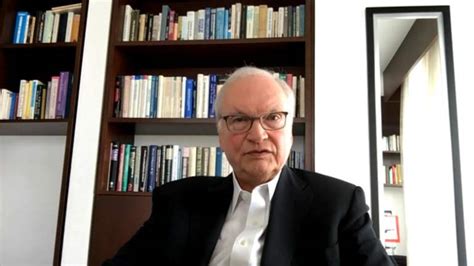A Quote by Matthieu Ricard
Neuroscience has proven that similar areas of the brain are activated both in the person who suffers and in the one who feels empathy. Thus, empathic suffering is a true experience of suffering.
Related Quotes
To draw an analogy: a man's suffering is similar to the behavior of a gas. If a certain quantity of gas is pumped into an empty chamber, it will fill the chamber completely and evenly, no matter how big the chamber. Thus suffering completely fills the human soul and conscious mind, no matter whether the suffering is great or little. Therefore the "size" of human suffering is absolutely relative.
One of the few times I'm hit emotionally is when I listen to the tapes sadists make of torturing their victims. There the person is currently suffering, you can hear them suffer, and that calls out for an empathic response. But when they're dead, when they're no longer suffering, when it's over, it's hard to feel empathetic for the corpse.
The world is full of suffering. Birth is suffering, decre- pitude is suffering, sickness and death are sufferings. To face a man of hatred is suffering, to be separated from a beloved one is suffering, to be vainly struggling to satisfy one's needs is suffering. In fact, life that is not free from desire and passion is always involved with suffering.
True freedom and the end of suffering is living in such a way as if you had completely chosen whatever you feel or experience at this moment. This inner alignment with Now is the end of suffering. Is suffering really necessary? Yes and no. If you had not suffered as you have, there would be no depth to you as a human being, no humility, no compassion. You would not be reading this now. Suffering cracks open the shell of ego, and then comes a point when it has served its purpose. Suffering is necessary until you realize it is unnecessary.
No one suffers so much as he [the genius] with the people, and, therefore, for the people, with whom he lives. For, in a certain sense, it is certainly only "by suffering" that a man knows. If compassion is not itself clear, abstractly conceivable or visibly symbolic knowledge, it is, at any rate, the strongest impulse for the acquisition of knowledge. It is only by suffering that the genius understands men. And the genius suffers most because he suffers with and in each and all; but he suffers most through his understanding. . . .
The basis of the self is not thought but suffering, which is the most fundamental of all feelings. While it suffers, not even a cat can doubt its unique and uninterchangeable self. In intense suffering the world disappears and each of us is alone with his self. Suffering is the university of ego-centrism.
There is no wrong suffering. There is imaginary, sham, feigned, simulated, pretended suffering. But the assertion that someone suffers for the right or wrong reason presupposes a divine, all-penetrating judgment able to distinguish historically obsolete forms of suffering from those in our time, instead of leaving this decision to the sufferers themselves.
In the face of suffering, one has no right to turn away, not to see. In the face of injustice, one may not look the other way. When someone suffers, and it is not you, that person comes first. One's very suffering gives one priority. . . . To watch over one who grieves is a more urgent duty than to think of God.




































